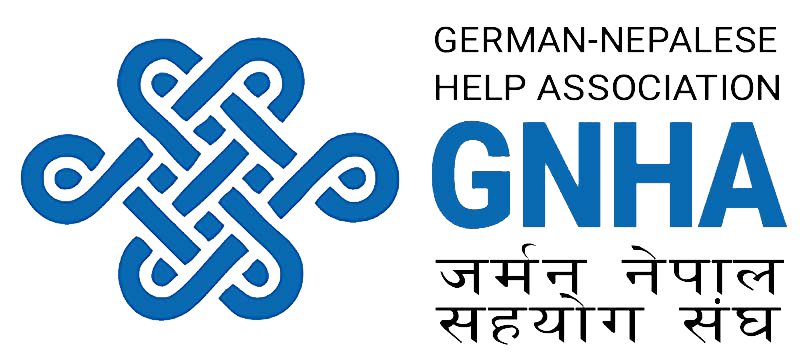Guideline for Protection (Social relief, empowerment and rehabilitation)
This guideline is to operate the programs of social protection, rehabilitation, empowerment and social wellbeing to support SDG Goal 5, “Gender Equality,” and the 15th plan’s goal of establishing a society free from discrimination, violence, and crime.
Objective of the guidelines
- To provide clear guidelines and framework for the selection and service delivery to the prior Dalit girls and young women as well as spinally injured patients.
- To offer Dalit girls and young women the opportunity to pursue school education, higher education, technical education, and vocational skills.
- To empower Dalit Girls/Young Women for self-employment through vocational skills development opportunity.
- To rehabilitate spinal injury patients and support to modify their home amenities for making accessible for wheelchair users (toilet, kitchen, ramp in entrance of home).
Key areas of the support
- Support School Education, higher academic education (Bachelor level) (i.e. BALLB (Bachelor of Arts bachelor of laws), Engineering, management, education, humanities etc.)
- Support to professional and vocational skills (3 month, 6 months and 1year courses) training (i.e. Sewing, Plumbing, electrician, housekeeping, beauty parlor, waitress etc.)
- Support to technical education (3/4 years courses) (Lab Technician, asthmatic Science, nursing, dental hygiene, radiography, hotel management, pharmacy, health assistance (HA), agriculture, sub-overseer, IT (Information technology) etc.)
- Support to rehabilitate spinal injury patients and provide wheelchair.
- Support to modify homes of rehabilitated patients for their easy access to inside home, toilet and kitchen.
Selection Criteria
- Living in slums, rental room, hut, Dalit Settlement
- Prior supported Dalit girls/young woman who are already drop out from school education
- Dalit girls not interested to go for bachelor level education but having highly motivated, interested, committed in vocational skill training
- Orphan, girls/young woman with single parents, living at other house, girls with normal disability will be given high priority.
- Poor economic Status (Parents work as a day labour /occupation job working for other house / field no having regular job for income below ten to fifteen thousand per month.
- Higher education and technical education to the Dalit young girl’s with high motivation, high interest/Commitment and high academic score at least ‘B’ grade and age limit below 25 years for higher education
- Girls /young woman who have not received assistance and support from other organizations for the same purpose.
- Ultra poor, women, children and the person who is sole bread earner of the family.
- The person having physical disability by spinal injury
Selection Process
- Fifteen girls/young woman who are already admitted in college with the support of Dalit girl’s education program will be continued.
- Organize case assessment visit of the possible identified cases, organize visit meeting with families, neighbors, schools, community groups etc. Identify actual need and also analyze what their family can afford themselves, what school can support or provide and what the project need to support.
- After the visit the project staffs fill up the personal case study form with the photo and also collect and update the application from the girls/young woman, parents for the support of needy girls/young woman. After collecting the application and case study project staff will prepare the list of the needy girls/youth for the support with the priority basic.
- An agreement paper will be prepared and signed with the parents on what they will provide and what the organization will support with the clear role and responsibilities of girls/young woman, parents and CN.
- The parents will also be informed in advance about the child protection policy of the organization.
- After collecting information and document of the needy girls from the field, the project staff shares the information to the scholarship selection committee. The selection committee will make the final decision of the girls for the support. Selection committee will represent following personals. Executive director, senior program officer, administration and finance officer and representative from cooperative.
- The patients rehabilitating in Spinal Injury Rehabilitation Center will be scrutinized by the doctors and authorities of SIRC. SIRC will recommend to country representative office for the support with the details of patients. The final decision will be made by DNH focal board member.
Program and services offered to the selected Dalit girls/young women and their families
- support to admission fees, School/college/institution fees, tuition fees and other financial assistance
- 2 times a year provide educational materials and 1 set of uniform, college books etc.
- Support to sanitary package
- Support to machines and technological equipment
- Health insurance support
- Follow-up training on AVP(Alternative to Violence Program) and house hold book-kipping training and goal setting workshop
- Training materials support for vocational skill trainees
- Support and link in the cooperative
- Provide opportunities for girls/young woman to the success business, entrepreneurs
- Support for job link and self-employment
- Home and college /institution visit
- Provide counseling service
- Provide NRs 128,000.00 per patient for rehabilitation and a wheelchair maximum 5 patients in a year or as decided by DNH board.
- Provide fund to modify maximum 8 houses or as per decided by the DNH board.
- Maximum fund per unit cost for home modification is NRs. 125,000.00 or as per decision made by the DNH board.
